Best Robotic Rectal Cancer Surgery in Ahmedabad

- Center of Excellence for Robotic Surgery
- Management of all Rectal Tumours
- 10+ years in Robotic Surgery

Rectal cancer is a tough diagnosis that deeply affects patients and their loved ones. In Ahmedabad, Dr. Harsh Shah is providing one of the best robotic rectal cancer surgery. With over 15+ years of experience in treating rectal cancer and many years of expertise in Robotic Surgery. He is also known for leading the best rectal cancer hospital in Ahmedabad, Gujarat, and across India.
11750+ Patients
11750+ Patients have been successfully treated
15+ Years
15+ years of work experience
as a rectal cancer specialist
24 + Awards
24+ Awards received by Dr. Shah for her achievements
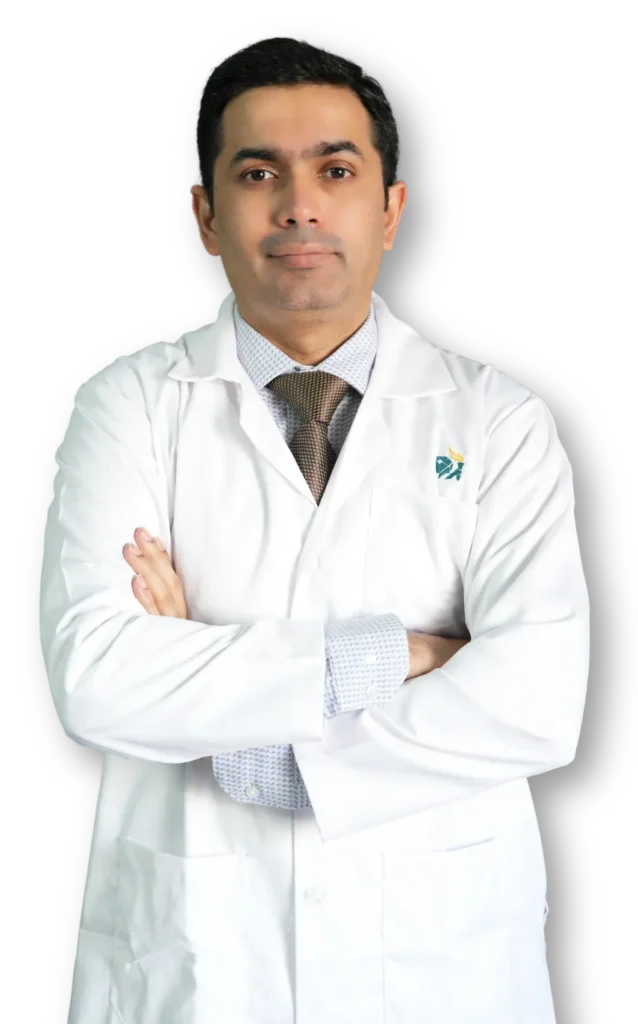
Dr. Harsh Shah
MS, DrNB(GI), MCh(GI)
Meet
Dr. Harsh Shah
- Leading GI & HPB Robotic Cancer Surgeon in India
- 15+ years of experience in treating various types of Gastrointestinal cancers
- Successfully treated many Rectal cancer patients with Robotic surgery
Management of Colon cancer involves proper diagnosis & early treatment
Diagnosis is performed with CT scan, MRI, colonoscopy, biopsy & CEA.
The treatment involves chemoradiation & surgery, depending on the extent of the disease.

What is rectal cancer?
Symptoms of Rectal Cancer:
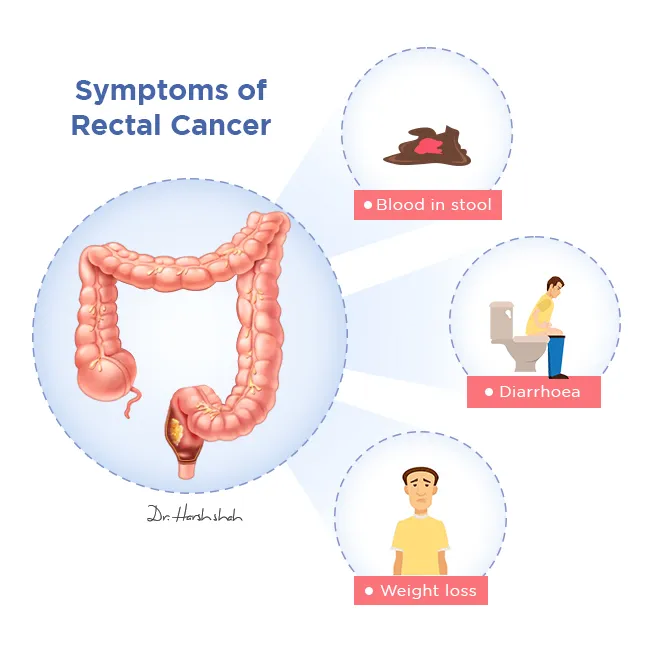
⦿ Changes in Bowel Movements: You might notice diarrhoea, constipation, or a change in how your stool looks, which lasts for more than a few days.
⦿ Blood in Stool: Seeing bright red or very dark blood in your stool could indicate rectal cancer.
⦿ Ongoing Stomach Discomfort: This could feel like cramps, gas, or pain in your abdomen.
⦿ Feeling Like You Can’t Empty Your Bowel: Even after going to the bathroom, you might feel like you still need to go, but it doesn’t help.
⦿ Feeling Very Weak or Tired: If you’re feeling unusually weak or tired without any clear reason, it could be a symptom.
⦿ Losing Weight Without Trying: If you’re losing weight and you don’t know why, it could be due to various health issues, including rectal cancer.
Rectal cancer is typically staged using the TNM system, which stands for tumor, lymph nodes, and metastasis. The stages of rectal cancer are as follows:
Stage 0 (Carcinoma in Situ): Cancer cells are only in the rectum’s innermost lining.
Stage I: Cancer has penetrated the rectum’s inner layers but hasn’t spread to lymph nodes or distant sites.

Stage II: Divided into IIA (cancer has spread through the muscle layer of the rectum) and IIB (cancer has spread to the rectum’s outermost layer) but hasn’t reached nearby lymph nodes or distant organs.
Stage III: Cancer has invaded one or more lymph nodes near the rectum. It may be subdivided based on the extent of lymph node involvement and whether cancer has penetrated the rectum’s walls.
Stage IV: Cancer has spread to distant organs, most commonly the liver or lungs. This stage is also subdivided based on the extent of the spread.
Staging for rectal cancer are as follows:

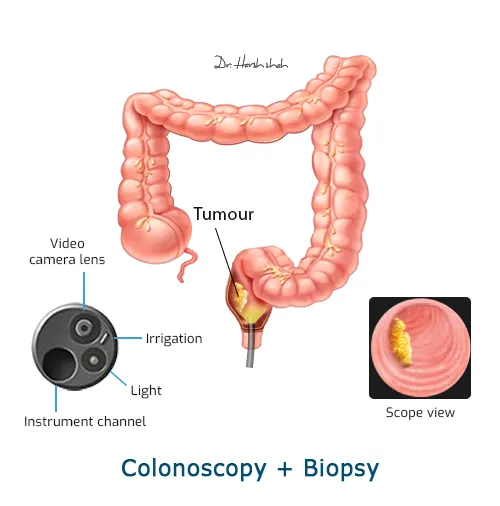
Treatment options for rectal cancer:
Chemotherapy: This treatment employs drugs to eliminate or halt the growth of cancer cells. It can be administered before or after surgery to remove any remaining cancer cells or to reduce the risk of the cancer returning.

Radiotherapy for Rectal Cancer: This method uses high-energy radiation beams to destroy cancer cells in the rectum. It’s commonly used in combination with surgery and chemotherapy to improve outcomes.
Surgery: Surgery is usually the most effective treatment for rectal cancer. It involves removing the tumour and nearby lymph nodes. The extent of the surgery required depends on the cancer’s stage and location. It is usually performed after chemoradiotherapy.
Happy Patients



Robotic Cancer Surgery in Ahmedabad


Surgical Videos & Photographs
Explore surgical videos & photographs with caution. Please be advised that viewer discretion is recommended.
Key Benefits of Robotic Surgery for Rectal Cancer
- Enhanced Precision: Allows for more accurate tumor removal.
- Minimized Blood Loss: Less bleeding during surgery.
- Quicker Recovery: Speeds up hospital discharge and healing.
- Reduced Pain: Less postoperative discomfort.
- Lower Infection Risk: Fewer complications from wounds.
- Better Visualization: 3D imaging aids precise dissection.
- Greater Dexterity: More flexible than human hands.
- Less Scarring: Smaller incisions improve cosmetic outcomes.
- Sphincter Preservation: Increases chances of maintaining normal bowel function.

An audio interview of Dr Harsh Shah with Akashwani on the topic of Robotic Surgery.
Tap Below to Listen

An audio interview of Dr Harsh Shah with Akashwani on the topic of Robotic Surgery.
Tap Below to Listen
Why Robotic Rectal Cancer Surgery is the best choice for you or your loved ones?
| Types of Surgery | Description | Benefits |
|---|---|---|
| Open Surgery | Involves a large incision to remove the tumor | Allows for direct access and removal of large tumors |
| Laparoscopic Surgery | Uses small incisions and a camera to guide the surgery | Less invasive, with smaller incisions and shorter recovery times |
| Robotic Surgery | Keyhole surgery | Less Pain, Less hospital stay, Early recovery |
| Better View (3D, 10x, HD) | Less blood loss, Better nerve preservation | |
| Flexible Instruments | Enhances Precision, Enhances Accuracy, Early functional recovery |
Rectal Cancer Removal Operation By
Dr. Harsh Shah
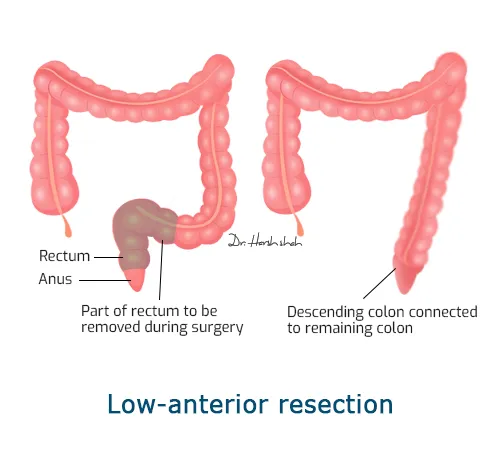
Low-anterior resection
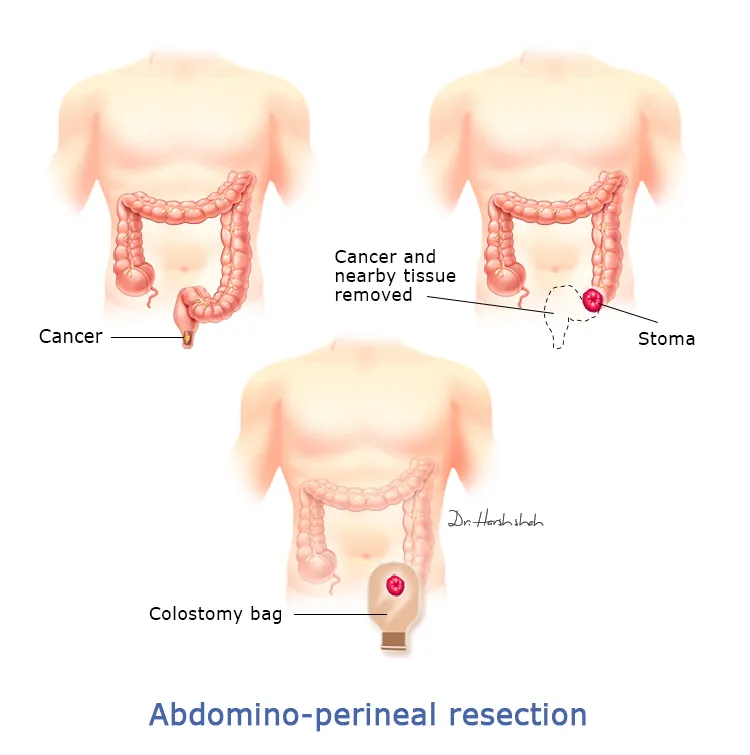
Abdomino-perineal resection
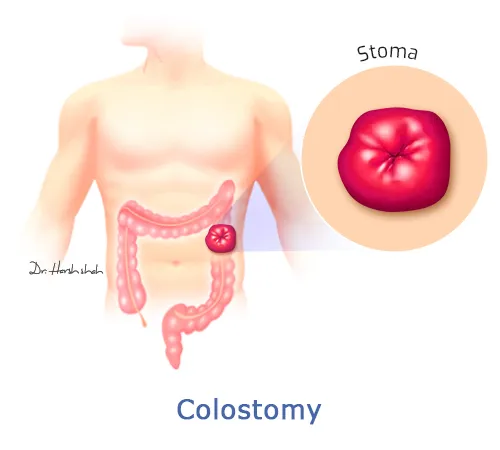
Colostomy
Why Choose Dr. Harsh Shah's Robotic Rectal Cancer Surgery?
Go for Dr. Harsh Shah for best skills in robotic cancer surgery, especially with the Da Vinci System, making surgeries accurate and quick to recover from. His advanced Robotic Surgery Centre is available in Ahmedabad, Gujarat.
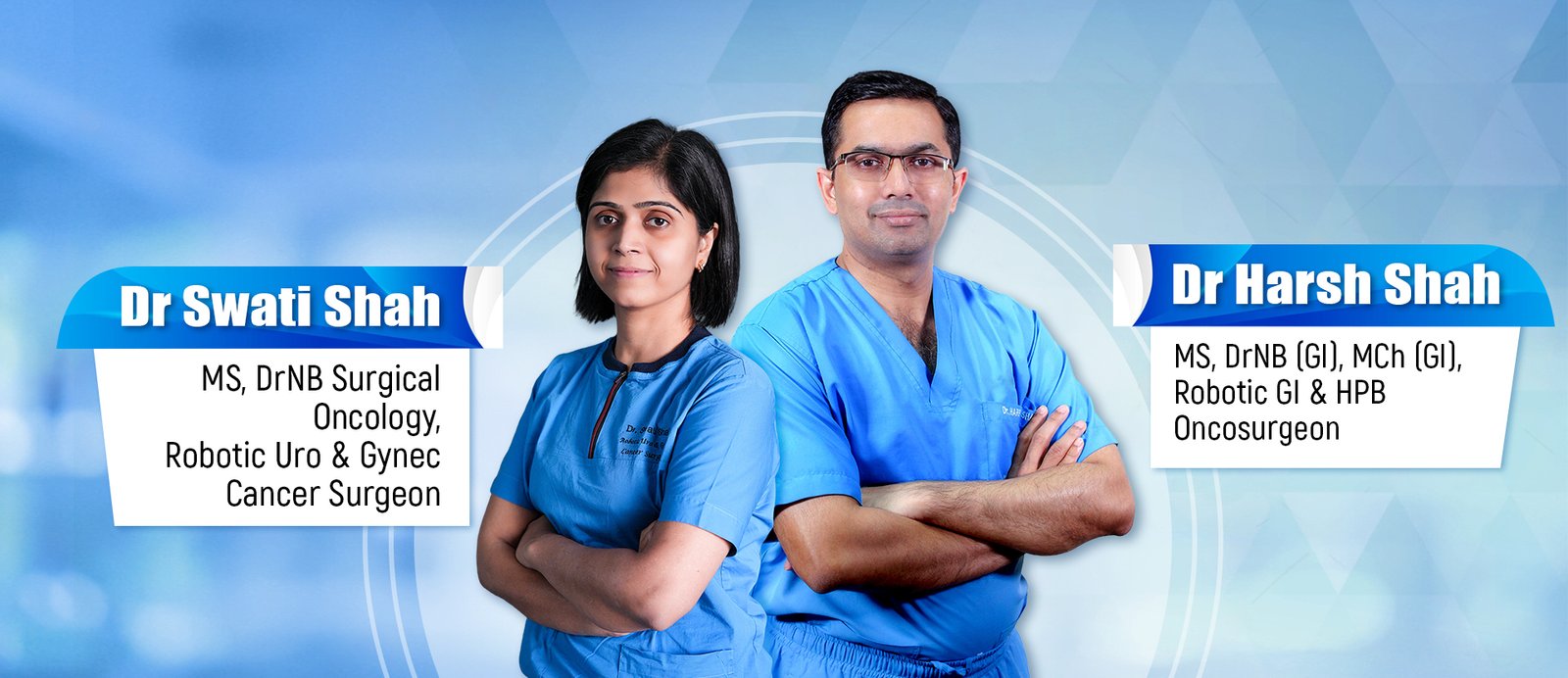


Infrastructure
The Hospital also has 50+ bedded ICU with the latest support systems such as ventilators, dialysis machines & a team of best critical care doctors.
Radilogy department is fully equipped with latest CT Scan & MRI machines. The hospital also has an interventional radiology suit.
Types of Robotic Surgeries for Rectal Cancer Treatment
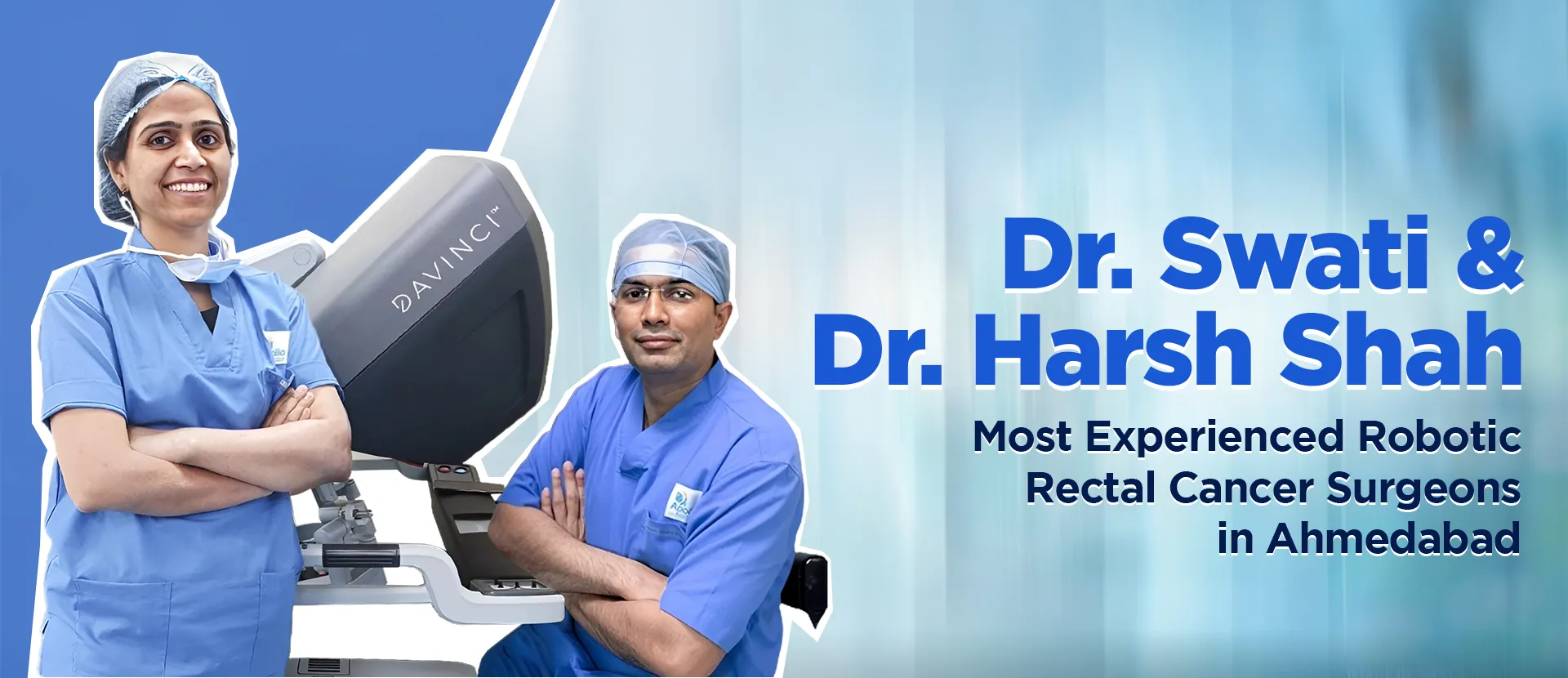
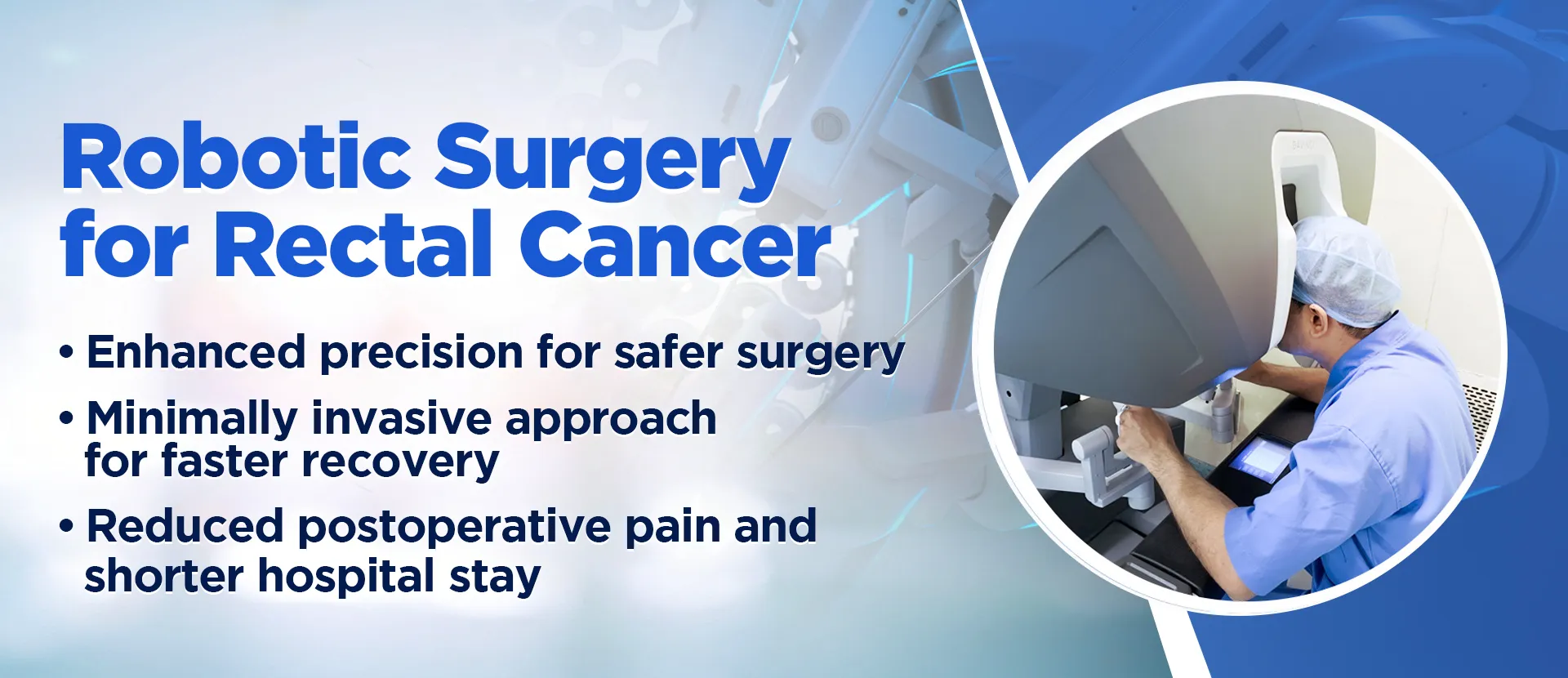
1
Robot-Assisted Low Anterior Resection (LAR)
2
Robot-Assisted Abdominoperineal Resection (APR)
3
Transanal Total Mesorectal Excision (TaTME)
4
Robotic Intersphincteric Resection
5
Single-Incision Robotic Surgery
Contact Robotic Surgery Centre
We provide a 24*7 emergency care.
Frequently Asked Questions
Surgery: Local excision or minimally invasive robotic surgery for small tumors.
Radiation Therapy: Often used to shrink tumors before surgery.
Chemotherapy: Combined with radiation in some cases to improve outcomes.
Get in touch
We provide a 24*7 emergency care.
If you have any kind of Uro, Gynec, GI & HPB Cancers related medial emergency, visit Apollo Hospital. An expert doctors is always available & treatment will be provided at once.
